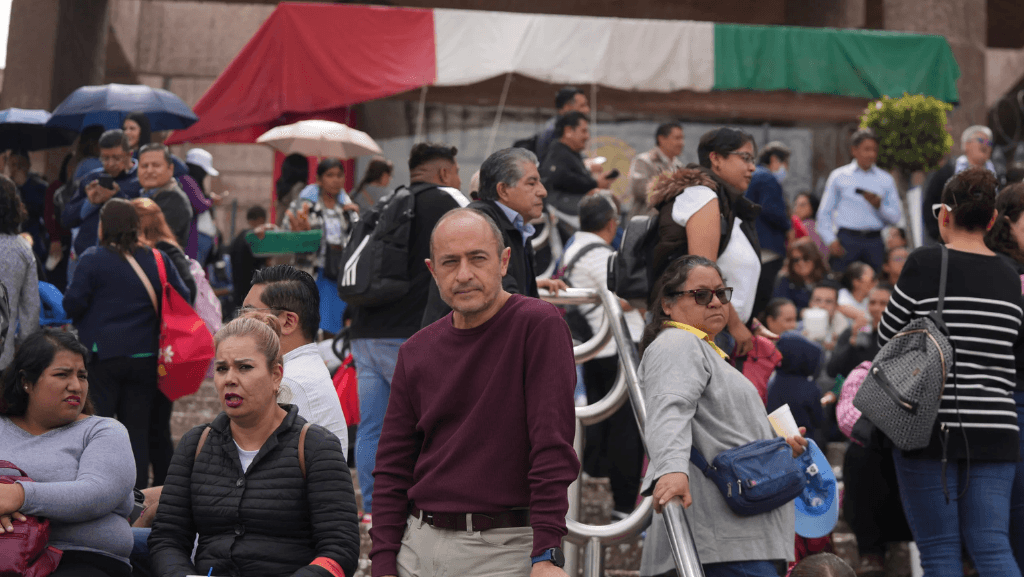
Mexicans to Vote for New Judges in Controversial Judicial Overhaul
Mexico’s plan to elect judges raises legal fears of political interference and loss of judicial independence.
In a landmark shift that has sparked both public debate and legal concern, Mexico is moving toward a judicial overhaul that will allow citizens to elect judges, effectively ending the country’s longstanding merit-based appointment system.
Critics, including prominent legal scholars and bar associations, warn that the reform could erode judicial independence and increase vulnerability to political influence and organised crime.
Judicial Reform Sparks Alarm Among Legal Experts
President Andrés Manuel López Obrador has proposed constitutional changes that would put the selection of judges, magistrates, and even Supreme Court justices to a national vote.
The plan, intended to “democratise” the judiciary, is set to be voted on by the incoming Mexican Congress after the June 2 national elections.
Currently, Mexico’s judges are appointed based on a competitive examination and evaluation process overseen by the Federal Judiciary Council, a system designed to prioritise legal expertise and impartiality. The proposed reform would replace this with popular elections, raising fears that judicial candidates could campaign with support from political parties or criminal organisations.
Key Legal and Institutional Risks
Critics argue that such a move could compromise the rule of law in Mexico. Legal professionals worry that elected judges may prioritise populist sentiment or allegiance to campaign backers over legal reasoning and constitutional mandates.
According to the Mexican Bar Association, over 70% of its members oppose the judicial election proposal, citing concerns over corruption, partisan bias, and lack of accountability.
The National Association of Judges and Magistrates has also issued a formal objection, stating that the reform “jeopardises judicial neutrality and competence.”
Constitutional Implications and Democratic Tension
The proposed amendments would require a two-thirds majority in Congress and the approval of at least 17 of Mexico’s 32 state legislatures, a high bar that may nonetheless be within reach if President López Obrador’s party and allies secure a supermajority in the upcoming elections.
The Mexican Constitution currently mandates that judicial officials be appointed based on technical qualifications and experience. Legal analysts argue that shifting to elections would necessitate a reinterpretation—or potentially a rewriting—of these fundamental principles.
Global Comparisons and Warnings
While judicial elections are practised in some U.S. states, they are rare in civil law countries like Mexico, which traditionally value judicial career paths grounded in academic and institutional training.
In countries with high levels of organised crime, like Mexico, where over 156,000 homicides have been recorded since 2018, experts argue that allowing the public to elect judges may create dangerous incentives.
Potential for Criminal Co-Option
-
Mexico’s judiciary has already struggled with corruption and criminal intimidation. The 2023 report by México Evalúa, an independent research group, found that 40% of federal judges reported experiencing pressure from political actors or criminal groups.
-
Moreover, campaign financing for judicial candidates—if left unchecked—could open doors for money laundering, bribery, and influence-peddling.
-
Without strict regulatory oversight from the National Electoral Institute (INE) and judicial ethics bodies, the reform could lead to a compromised legal system.
What Happens Next?
The final decision rests on the outcome of the June 2 elections, where control of Congress will determine the feasibility of López Obrador’s constitutional reforms. While the current president leaves office later this year, his legacy project could fundamentally reshape the Mexican justice system for generations.
For now, the country finds itself at a constitutional crossroads — torn between demands for greater public oversight and the imperative to protect judicial integrity.
For any enquiries or information, contact info@thelawreporters.com or call us on +971 52 644 3004. Follow The Law Reporters on WhatsApp Channels.